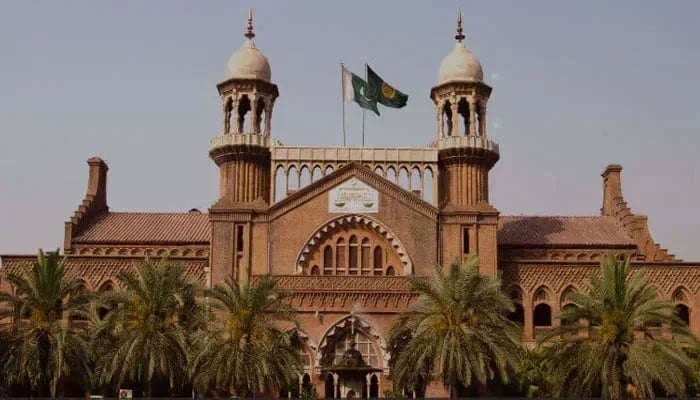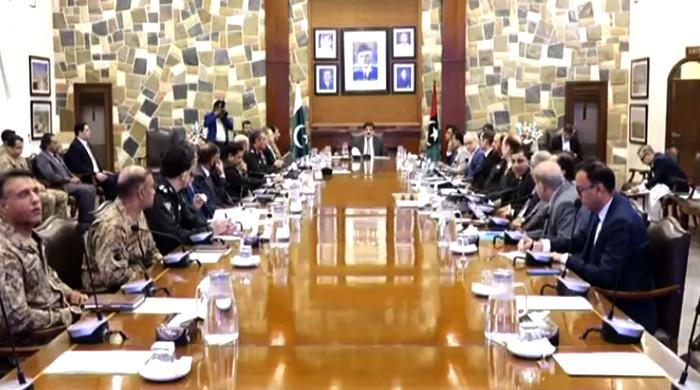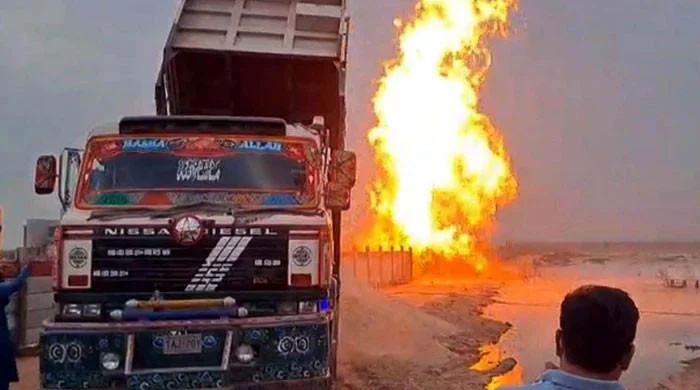PTI challenges amendments to Peca law in LHC
Plea calls for "all orders or actions taken pursuant to Peca tweaks to be set aside with retrospective effect"
February 08, 2025

- Plea filed by Punjab opposition leader, PFUJ secretary general.
- Wants Peca tweaks to be declared ultra vires of the Constitution.
- Cites Articles 10-A, 19, 19-A, 37, 38, 141, 142, 143 and others.
LAHORE: The Pakistan Tehreek-e-Insaf (PTI) has moved the Lahore High Court (LHC) against the recent contentious amendments made by the government in the Prevention of Electronic Crimes Act (Peca), 2016.
The petition filed by Punjab Assembly Opposition Leader Malik Ahmad Khan Bhachar and Pakistan Federal Union of Journalists (PFUJ) Secretary General Rana Azeem calls for the controversial tweaks to be declared ultra vires under the Constitution's Articles 10-A, 19, 19-A, 37, 38, 141, 142, 143 and others.
"It is further prayed that all orders or actions taken pursuant to the Prevention of Electronic Crimes (Amendment) Act, 2025 may kindly be set aside with retrospective effect," reads the plea while claiming that the law was politically motivated and was aimed at victimising journalists.
The Pakistan Muslim League-Nawaz (PML-N)-led ruling coalition had bulldozed the controversial amendments from both the National Assembly and the Senate to an already contentious Peca law within days with the opposition parties, journalists and media bodies decrying the lack of consultations as well as its provisions.
The law, which has now come into effect following President Asif Ali Zardari's assent, provisions new definitions, the establishment of regulatory and investigative bodies, and stricter penalties for disseminating "false" information.
The new amendments lowered the punishment for spreading "fake information" online to three years while the offender could also face a fine of up to Rs2 million.
The new amendments also proposed the establishment of the Social Media Protection and Regulatory Authority (SMPRA), the National Cyber Crime Investigation Agency (NCCIA) and the Social Media Protection Tribunal.
Furthermore, it stated, that any person "aggrieved by fake and false information" can approach the authority for removal or blocking access to such information and the authority would issue orders no later than 24 hours on the request.
The fresh changes also stated that the authority might require any social media platform to enlist with it in any manner, form and on payment of such fee as may be prescribed.
Additionally, the new amendments also proposed the constitution of a Social Media Complaint Council to receive and process complaints made by aggrieved parties against violation of any provision of the cybercrime law.
It also proposed the establishment of Social Media Protection Tribunals that will resolve cases within 90 days, with appeals allowed to the Supreme Court within 60 days.
The media bodies and journalists' ire is not limited to them as voices within the PML-N, former minister Khawaja Saad Rafique for instance, has also called for further consultation-driven changes to the amended law.
Although, the government has said that had no intention of misusing the law, the Peca amendments have been challenged in the Supreme Court, Islamabad High Court (IHC) and Sindh High Court (IHC).
The plea, filed in the SC by one Muhammad Qayum Khan, also calls for the Peca tweaks to be declared ultra vires, whereas the PFUJ has challenged the law in IHC calling it "illegal" while lamenting the government's "unlimited censorship powers".
Meanwhile, the SHC petition, filed by Mohammad Anis and others, argues that Section 2R and 26A introduced by the government were "against the freedom of press and expression, and liable to be struck down".











